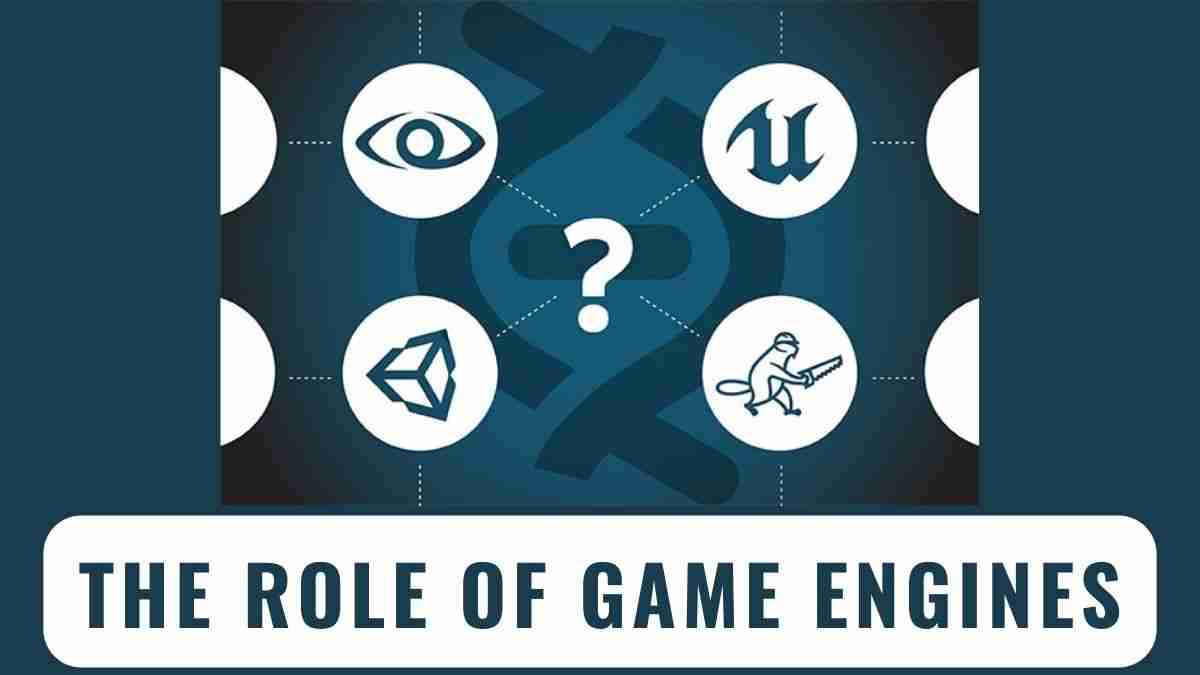The role of Game Engines: Modern game systems power creation. They empower creators to build lush and engaging games. Essentially, a game engine simplifies and streamlines the game development process by providing a software framework. This page discusses game engines’ traits, perks, and role in game creation.
- Everything about ITS: Intelligent Transportation Systems: Reshaping the way we move
What is a Game Engine?
Game systems enable game development. Rendering, physics, coding, and more are usually included. These tools enable Xbox, PC, and mobile 3D and 2D game development.
The Features of Game Engines
The role of Game Engines: Game systems have elements that make game development easy. Some of these traits are shared by most engines. Here are some of the most common features:
- Rendering Engine: The game system renders images here. It generates screen images and movements.
- Physics Engine: The physics system simulates gravity, impact detection, and more.
- Audio Engine: The audio engine handles the sound effects and music in the game.
- Scripting Tools: These tools let writers design character action, AI behaviour, and more.
- Animation Tools: These tools are used to create and manage the animations in the game.
- Networking: Networking tools let game makers add shared features so users can play online.

- List of top games of all time: The Top Games of all time: Here is a Concise list of 10 Games
The Benefits of Using Game Engines
The role of Game Engines: Game engines offer several benefits to developers. Here are some of the most significant ones:
- Time-Saving: Game systems give creators pre-built tools and materials to build games fast. They can focus on game design and content instead of technical aspects.
- Cross-Platform Support: Most game systems handle consoles, PCs, and mobile devices. This lets creators build games that can be played on many devices, expanding their audience.
- Community Support: Game engine makers collaborate. This is invaluable for new coders who need aid with unique issues.
- Scalability: Game systems manage complex game realms and grow with game production. Developers can add new features and content without fretting about the engine’s capacity.
- Cost-Effective: Game engine development can be expensive and time-consuming. Game engines can save creators time and money.
Conclusion
The role of Game Engines: Modern gaming engines are essential. They provide creators strong tools to create immersive games. They simplify and expedite game production and provide time-saving, cross-platform support, community support, scalability, and cost-effectiveness. Before choosing a game engine, creators should carefully analyse its features and advantages.
Read These Articles Too:
- Unreal Engine 5: Major Improvements will be a part of the Update
- GTA 6: Stunning Graphics for the Game in Unreal Engine 5
- Overwatch 2: The developers claim that updates to the heroes are coming soon
- Stellaris Cheat Engine 2024: Guide to Explain Cheat Engine
- Gears of war 6: Release Date and System Requirements




